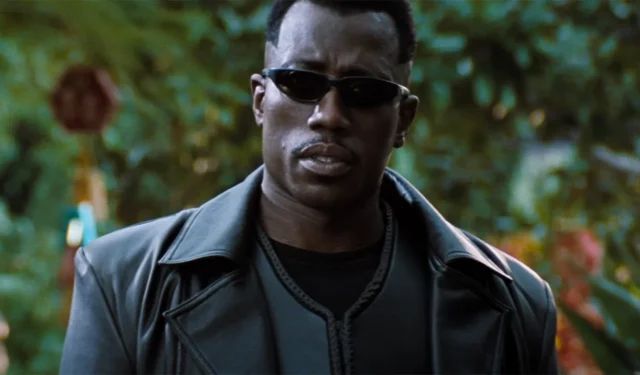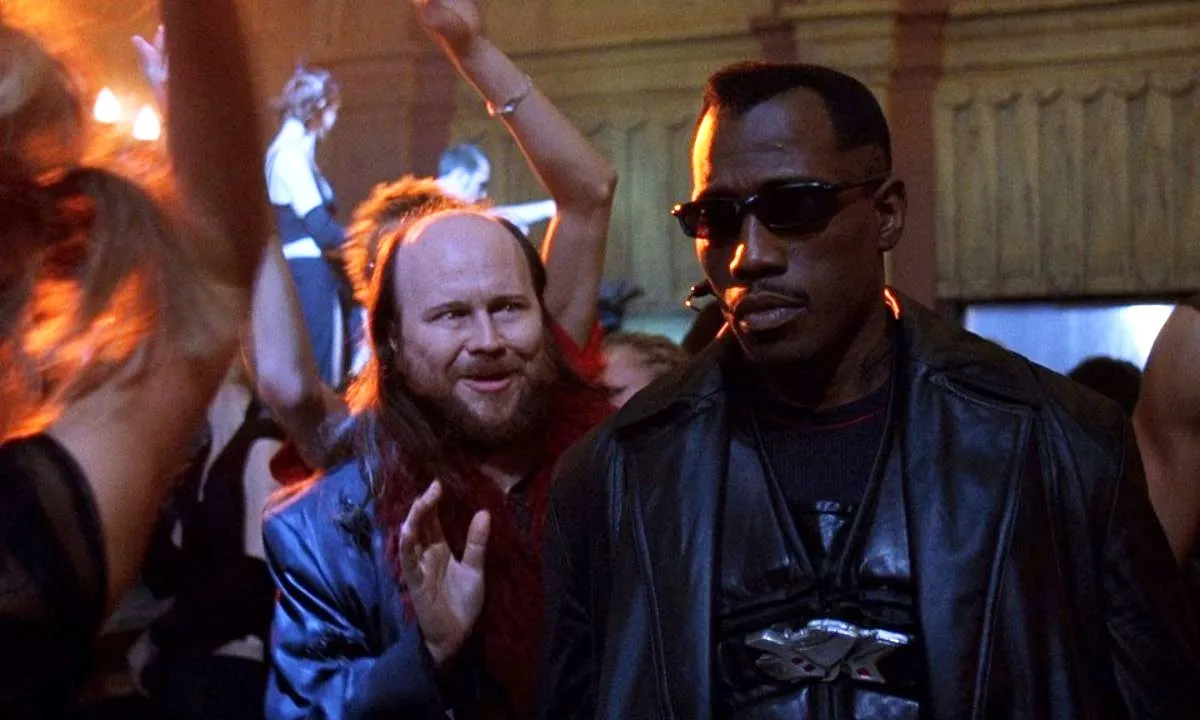
Although Blade might not be the first name you associate with superheroes, his impact on the comic book realm is undeniable.
In reality, Blade is often credited with kickstarting Fox’s X-Men series, Sam Raimi’s Spider-Man films, and laying groundwork for the Marvel Cinematic Universe (MCU), a contribution that was recently highlighted in Deadpool & Wolverine.
Blade is inherently a Marvel creation, brought to life by writer Marv Wolfman and artist Gene Colan. First appearing as a secondary character in Tomb of Dracula #10 (1973), this unique half-human, half-vampire anti-hero, also known as Eric Brooks, quickly evolved into an enduring and legendary figure within the Marvel Comics universe. What sets Blade apart from typical vampires is that he boasts nearly all their strengths but lacks their vulnerabilities; he can roam freely under the sun. Often referred to as the Daywalker, Blade is a skilled martial artist who employs his prowess to eradicate the dreadful creatures and dark sorcerers threatening innocent lives.
Naturally, his weapon of choice is a blade—whether it be swords or daggers, he handles them with finesse.
Generally a solitary figure, Blade occasionally collaborates with various characters from the Marvel universe. He has also confronted some of the mightiest vampires in the Marvel lore, including the infamous Dracula and Morbius, the latter of whom played a key role in enhancing Blade’s abilities.
The MCU’s Existence is Tied to Blade

What makes Blade such a significant character? While Eric Brooks has a rich history in comic books, he might not be the quintessential icon of the medium. Yet, the story changes when it comes to adaptations.
The inaugural Blade film, featuring Wesley Snipes in the lead role and directed by Stephen Norrington, debuted in 1998, receiving unexpected critical praise and box office success. It’s important to remember that this was an R-rated film, and prior superhero adaptations struggled significantly at the box office, aside from a few notable DC Batman titles. Blade, however, broke this trend, demonstrating that Marvel superheroes could thrive on the big screen, paving the way for the first X-Men feature in 2000 and Sam Raimi’s Spider-Man trilogy, which kicked off in 2002. While not all Marvel films before (and even after) the emergence of the MCU were as well-received, Blade undoubtedly established that investing in these adaptations could be fruitful.
Can the Marvel Cinematic Universe replicate that initial success? They are making an effort, but only time will tell if they will be successful. In Deadpool & Wolverine, Wesley Snipes’ cameo humorously noted the challenges faced by the MCU’s version of Blade, played by Mahershala Ali, which has yet to gain a solid footing. Initially announced at San Diego Comic-Con in 2019, the film has experienced numerous production hurdles, with changes in writers and directors. However, Blade could introduce a captivating element to the MCU, especially as the franchise explores more supernatural themes and monsters, as showcased in projects like Doctor Strange in the Multiverse of Madness, WandaVision, Agatha All Along, and Werewolf by Night.
Perhaps the comedic moments involving Blade in Deadpool & Wolverine are just what is needed to reignite interest in the character.




Leave a Reply